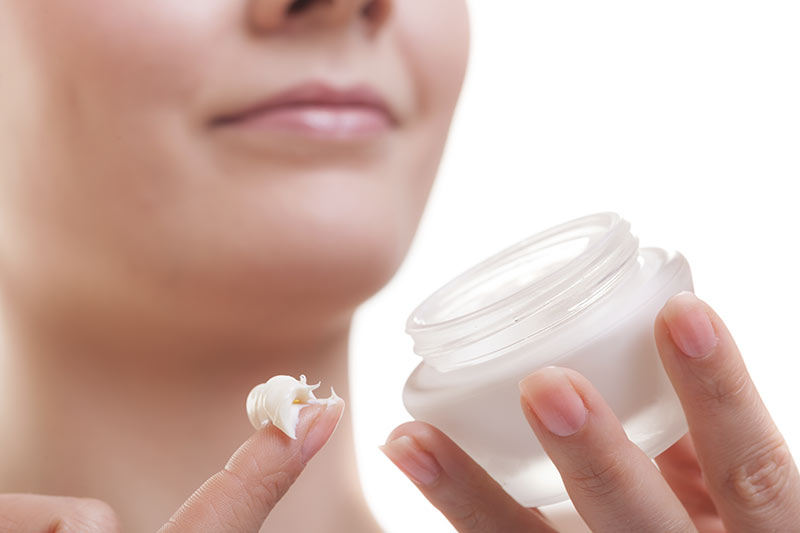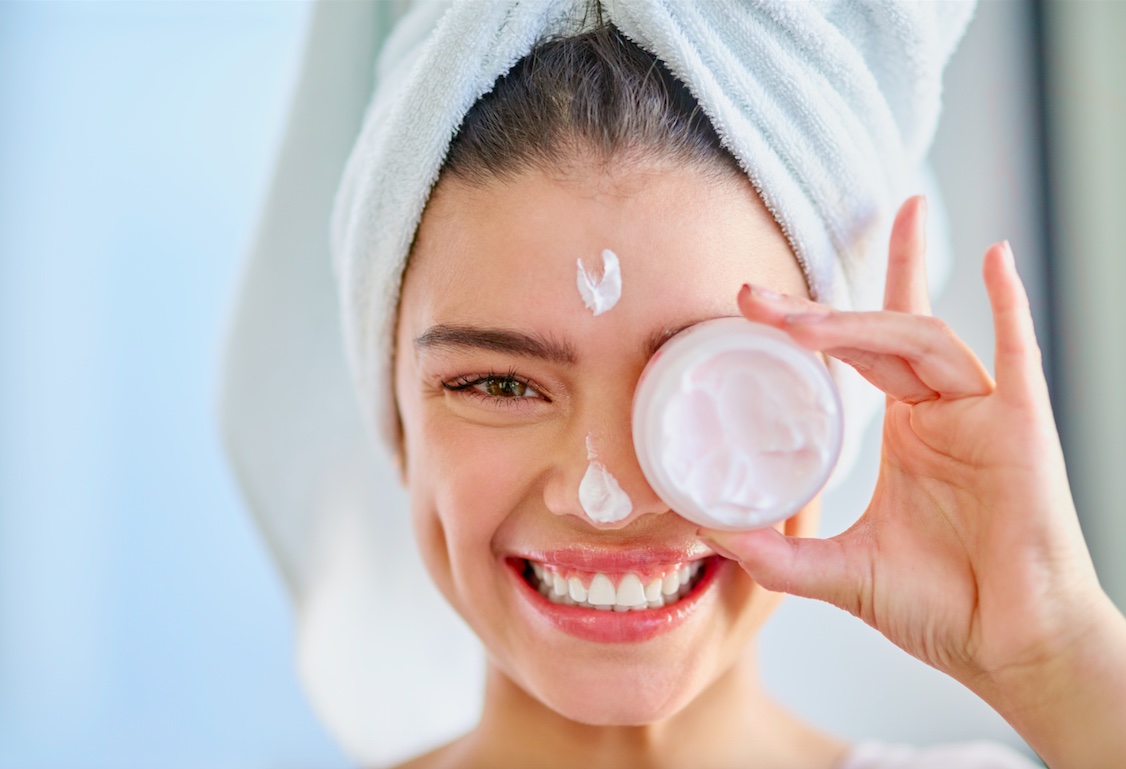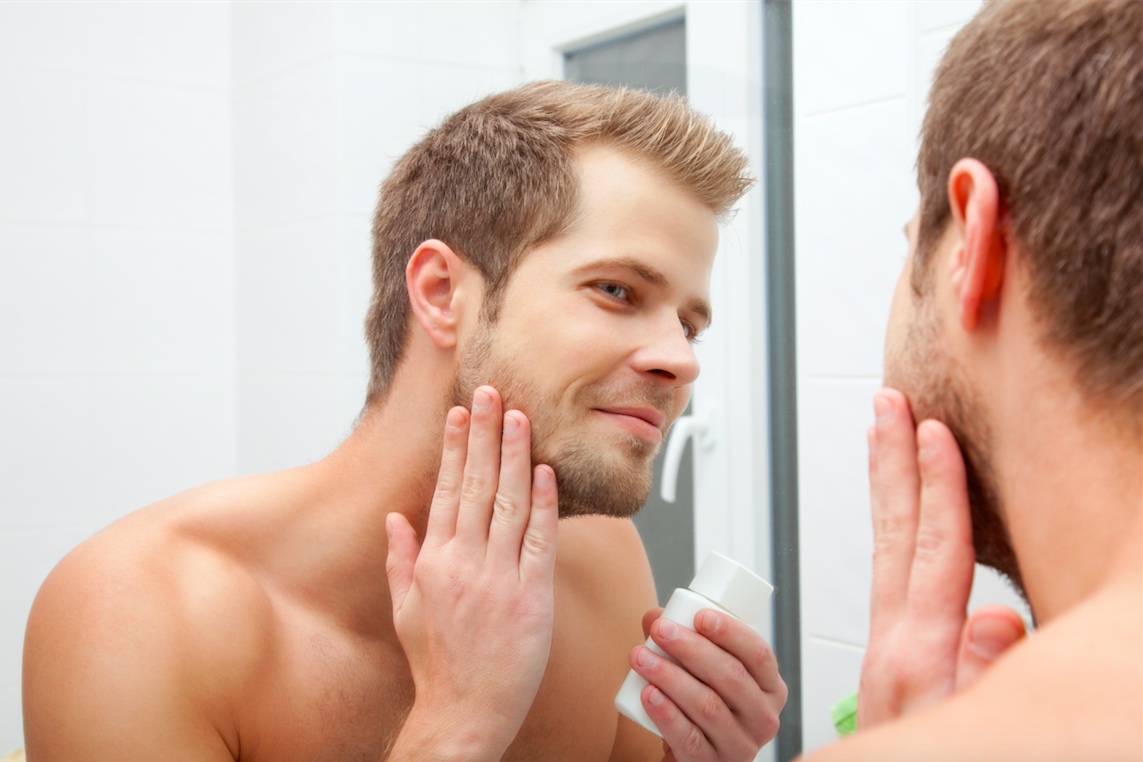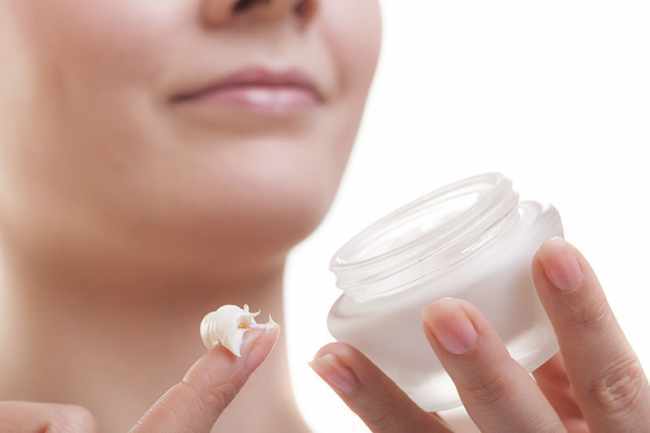Huidverzorgingsmarktonderzoek | Advies voor de schoonheidsindustrie

Nu de schappen vol staan met producten en het consumentenlandschap voortdurend verandert, wordt marktonderzoek op het gebied van huidverzorging het kompas dat bedrijven naar succes leidt.
Naarmate consumenten steeds kritischer en bewuster worden van hun huidverzorgingskeuzes, moeten bedrijven verschillende factoren in acht nemen om aan de veranderende vraag te voldoen en concurrerend te blijven. Daarom is marktonderzoek naar huidverzorging een essentieel hulpmiddel geworden om consumentengedrag, markttrends en concurrentiedynamiek te begrijpen. Het stelt huidverzorgingsbedrijven in staat om weloverwogen beslissingen te nemen en groeikansen te grijpen.
Wat is marktonderzoek voor huidverzorging?
Huidverzorgingsmarktonderzoek evalueert consumentenattitudes en -meningen, sensorische interactie, look and feel, producteffectiviteit, productbruikbaarheid en merkaantrekkingskracht van huidverzorgingsproducten. Het omvat moisturizers, gezichtsreinigers, zonnebrandcrèmes, maskers, anti-aging serums en meer.
Marktonderzoek naar huidverzorgingsproducten heeft als doel om bedrijven via uitgebreide analyses en datagestuurde inzichten een strategische routekaart te bieden voor productontwikkeling, marketingstrategieën en merkpositionering binnen het ecosysteem van huidverzorgingsproducten.
Waarom hebben bedrijven marktonderzoek naar huidverzorging nodig?
Huidverzorgingsmarktonderzoek stelt bedrijven in staat om diepgaande inzichten te verkrijgen in consumentenvoorkeuren, behoeften en aankoopgedrag. Bedrijven kunnen vervolgens hun productaanbod, marketingberichten en klantervaringen aanpassen om effectief aan te sluiten bij hun doelgroep.
Bovendien levert marktonderzoek voor huidverzorgingsproducten bedrijven waardevolle concurrentie-informatie op, waarmee ze concurrentiebedreigingen kunnen identificeren, kunnen profiteren van marktlacunes en hun merk effectief kunnen onderscheiden.
Dit marktonderzoek helpt bedrijven ook om onontgonnen marktsegmenten, opkomende trends en nichemogelijkheden voor groei te ontdekken. Door white spaces in de markt te identificeren en veranderende consumentenbehoeften te begrijpen, kunnen bedrijven hun productaanbod innoveren, uitbreiden naar nieuwe markten en profiteren van lucratieve groeimogelijkheden.
Het brengt echter nog veel meer voordelen voor bedrijven met zich mee, waaronder:
- Concurrerende intelligentie:Door middel van concurrentieanalyse helpt marktonderzoek naar huidverzorging bedrijven op de hoogte te blijven van de strategieën, productinnovaties en marktpositionering van hun concurrenten.
- Richtlijnen voor productontwikkelingMarktanalyse begeleidt bedrijven door de hele productontwikkelingscyclus, van conceptontwikkeling tot formulering en verpakking.
- Kansen voor marktuitbreiding:Onderzoek naar de markt voor huidverzorging identificeert mogelijkheden voor uitbreiding en diversificatie, waardoor bedrijven nieuwe geografische markten, distributiekanalen en productcategorieën kunnen verkennen.
- Risicobeperking:Dit marktonderzoek helpt bedrijven om risico's bij productlanceringen, marktuitbreiding en strategische investeringen te beperken.
Wanneer moet u marktonderzoek naar huidverzorging uitvoeren?

Timing is cruciaal bij het uitvoeren van marktonderzoek naar huidverzorging. Hieronder staan enkele belangrijke overwegingen voor het bepalen van het juiste moment om onderzoek te doen:
- Productontwikkelingsfase: Huidverzorgingsmarktonderzoek moet beginnen tijdens de productontwikkeling om inzicht te krijgen in productformulering, verpakking en positionering. Door consumentenvoorkeuren, markttrends en concurrentielandschappen vroeg in de ontwikkeling te begrijpen, kunnen bedrijven hun productaanbod aanpassen om effectief aan de marktvraag te voldoen.
- Voorbereiding vóór de lancering: Voordat ze een nieuw huidverzorgingsproduct lanceren of een nieuw marktsegment betreden, moeten bedrijven grondig marktonderzoek uitvoeren om de marktrijpheid te beoordelen, mogelijke toetredingsdrempels te identificeren en hun marketingstrategieën te verfijnen. Dit pre-launchonderzoek helpt bedrijven om de marktdynamiek te anticiperen, productconcepten te valideren en lanceringsplannen te optimaliseren om succes te maximaliseren.
- Initiatieven voor marktuitbreiding: Huidverzorgingsmarktonderzoek is essentieel bij het starten van marktexpansie-initiatieven, zoals het betreden van nieuwe geografische markten of het uitbreiden van productlijnen. Door marktbeoordelingen en haalbaarheidsstudies uit te voeren, kunnen bedrijven marktkansen evalueren, concurrentielandschappen beoordelen en de meest levensvatbare expansiestrategieën identificeren.
Vragen die u moet stellen voordat u marktonderzoek naar huidverzorging uitvoert
Voordat u begint met marktonderzoek naar huidverzorging, is het essentieel om de juiste vragen te stellen om ervoor te zorgen dat onderzoeksinspanningen gericht zijn en bruikbare inzichten opleveren. Hier zijn essentiële vragen om te overwegen:
• Identificatie van doelgroep:
Wie zijn de doelconsumenten voor de huidverzorgingsproducten of -diensten die worden onderzocht? Wat zijn hun demografie, levensstijlvoorkeuren en huidverzorgingsproblemen? Het begrijpen van het profiel van de doelgroep is cruciaal voor het ontwerpen van onderzoeksmethodologieën en het afstemmen van gegevensverzamelingsinspanningen om effectief de juiste respondenten te bereiken.
• Verduidelijking van onderzoeksdoelstellingen:
Welke specifieke doelstellingen willen we bereiken met marktonderzoek naar huidverzorging? Het duidelijk definiëren van onderzoeksdoelstellingen helpt onderzoeksinspanningen af te stemmen op bedrijfsdoelen en zorgt ervoor dat onderzoeksresultaten uitvoerbaar en impactvol zijn.
• Methodologieselectie:
Welke onderzoeksmethodologieën zijn het meest geschikt om onze onderzoeksdoelstellingen te bereiken en onze doelgroep te bereiken? De juiste onderzoeksmethoden zijn essentieel om betrouwbare en relevante data-inzichten te verkrijgen.
• Gegevensverzamelingsplan:
Hoe worden gegevens verzameld en welke maatregelen worden genomen om de kwaliteit en validiteit van de gegevens te waarborgen? Het opstellen van een robuust plan voor gegevensverzameling omvat het definiëren van bemonsteringstechnieken, enquête-instrumenten, tijdlijnen voor gegevensverzameling en kwaliteitsborgingsprotocollen om vertekeningen en fouten bij het verzamelen en analyseren van gegevens te minimaliseren.
• Budgettoewijzing:
Welk budget is beschikbaar voor marktonderzoek naar huidverzorging en hoe wordt dit verdeeld over onderzoeksactiviteiten? Uitgebreid marktonderzoek vereist voldoende financiële middelen om de kosten van onderzoeksontwerp, gegevensverzameling, analyse en rapportage te dekken.
Toonaangevende spelers op de huidverzorgingsmarkt
Talrijke spelers, waaronder wereldwijde ondernemingen, nichemerken en opkomende startups kenmerken de markt voor huidverzorging. Hier zijn enkele van de belangrijkste spelers op de markt voor huidverzorging:
- L'Oréal: Als een van 's werelds grootste cosmeticabedrijven heeft L'Oréal een aanzienlijke aanwezigheid op de markt voor huidverzorging met merken als L'Oréal Paris, Lancôme, Kiehl's en Garnier. L'Oréal biedt verschillende huidverzorgingsproducten die inspelen op meerdere huidtypen en -problemen.
- Johnson & Johnson: Met merken als Neutrogena, Aveeno en Clean & Clear is Johnson & Johnson een belangrijke speler op de huidverzorgingsmarkt. Het huidverzorgingsportfolio van het bedrijf omvat producten voor acnebehandeling, anti-aging, hydratatie en zonbescherming.
- Procter & Gamble: P&G is eigenaar van verschillende huidverzorgingsmerken, waaronder Olay, SK-II en Gillette. Olay staat met name bekend om zijn uitgebreide assortiment huidverzorgingsproducten die gericht zijn op verschillende leeftijdsgroepen en huidproblemen.
- Unilever: Het huidverzorgingsportfolio van Unilever omvat merken als Dove, Vaseline en Simple. Dove, bekend om zijn zachte en hydraterende formules, is een toonaangevend merk in de huidverzorgingsmarkt en biedt producten voor lichaamsverzorging, gezichtsverzorging en handverzorging.
- Estée Lauder: Estée Lauder staat bekend om zijn luxe huidverzorgingsmerken, waaronder Estée Lauder, Clinique en La Mer. Deze merken bieden premium huidverzorgingsproducten met geavanceerde formules en innovatieve ingrediënten.
- Neutrogena: Neutrogena, een dochteronderneming van Johnson & Johnson, is een bekend huidverzorgingsmerk dat een breed scala aan door dermatologen aanbevolen producten aanbiedt. Het merk omvat reinigers, moisturizers, acnebehandelingen en zonnebrandmiddelen.
Regionale inzichten

De markt voor huidverzorging vertoont verschillende trends en dynamieken in verschillende regio's wereldwijd. Regionale inzichten bieden waardevolle informatie over consumentenvoorkeuren, markttrends, regelgevingslandschappen en concurrentiedynamiek. Hier zijn enkele cruciale regionale inzichten in de markt voor huidverzorging:
• Azië-Pacific (APAC): De APAC-regio draagt aanzienlijk bij aan de wereldwijde markt voor huidverzorging, gedreven door het groeiende schoonheidsbewustzijn, toenemende besteedbare inkomens en de invloed van K-beauty- en J-beauty-trends. Landen als Zuid-Korea, Japan, China en India zijn belangrijke markten voor huidverzorgingsproducten, met een sterke vraag naar innovatieve formules, natuurlijke ingrediënten en geavanceerde huidverzorgingstechnologieën.
• Noord-Amerika: De Noord-Amerikaanse markt voor huidverzorging wordt gekenmerkt door een hoog niveau van productinnovatie, een sterk consumentenbewustzijn over huidverzorgingsingrediënten en de aanwezigheid van toonaangevende merken en retailers. Trends zoals clean beauty, anti-aging huidverzorging en inclusiviteit stimuleren de marktgroei in de regio.
• Europa: Europa vertegenwoordigt een volwassen huidverzorgingsmarkt die zich richt op premium en natuurlijke producten. Landen als Frankrijk, Duitsland, het Verenigd Koninkrijk en Italië zijn vitale markten voor huidverzorging, waarbij consumenten op zoek zijn naar praktische en duurzame huidverzorgingsoplossingen. De regio is ook getuige van de opkomst van schone schoonheid en milieuvriendelijke huidverzorgingsmerken, gedreven door het toenemende milieubewustzijn van de consument.
• Latijns-Amerika: Latijns-Amerika is een opkomende markt voor huidverzorgingsproducten, aangewakkerd door stijgende besteedbare inkomens, verstedelijking en een groeiende schoonheidscultuur. Landen als Brazilië, Mexico en Argentinië dragen aanzienlijk bij aan de huidverzorgingsmarkt van de regio. Trends zoals zonbescherming, anti-vervuilingshuidverzorging en multifunctionele producten worden steeds populairder onder Latijns-Amerikaanse consumenten.
Wat zijn de snelst groeiende segmenten?
In de dynamische markt voor huidverzorging ervaren bepaalde segmenten een snelle groei en vraag vanwege veranderende consumentenvoorkeuren, technologische vooruitgang en opkomende trends. Het identificeren van deze snelst groeiende segmenten is cruciaal voor bedrijven om te profiteren van marktkansen en concurrerend te blijven. Hier zijn enkele van de snelst groeiende segmenten in de markt voor huidverzorging:
- Natuurlijke en biologische huidverzorging: Met het toenemende bewustzijn van consumenten over de potentiële risico's van synthetische ingrediënten en een groeiende voorkeur voor schone en duurzame schoonheidsproducten, heeft het segment natuurlijke en biologische huidverzorging een aanzienlijke groei doorgemaakt. Consumenten zoeken producten die zijn samengesteld met plantaardige ingrediënten, botanische extracten en milieuvriendelijke verpakkingen.
- Anti-vervuiling huidverzorging: Omdat verstedelijking en milieuvervuiling wereldwijd blijven toenemen, is er een groeiende vraag naar huidverzorgingsproducten die zijn ontworpen om de huid te beschermen tegen omgevingsinvloeden zoals luchtvervuiling, UV-straling en blauw licht van elektronische apparaten. Anti-vervuilingshuidverzorgingsformules bevatten vaak antioxidanten, beschermende barrières en ontgiftende ingrediënten om de huid te beschermen tegen schadelijke omgevingsstressoren.
- Huidverzorging met CBD: Het gebruik van cannabidiol (CBD) in huidverzorgingsproducten is een prominente trend geworden, gedreven door de vermeende ontstekingsremmende, antioxiderende en kalmerende eigenschappen van CBD. CBD-geïnfuseerde huidverzorgingsproducten, waaronder serums, crèmes en maskers, richten zich op huidproblemen zoals acne, ontstekingen en droogheid. Nu de wettelijke barrières rondom CBD in veel regio's geleidelijk worden versoepeld, ervaart het CBD-huidverzorgingssegment een snelle groei en innovatie.
- Verzorging en huidverzorging voor mannen: Het segment huidverzorging en verzorging voor mannen blijft groeien naarmate mannen meer investeren in hun persoonlijke verzorgingsroutines. Merken introduceren gespecialiseerde huidverzorgingsproducten voor mannen, waaronder reinigingsmiddelen, moisturizers en anti-agingbehandelingen die zijn samengesteld om in te spelen op de specifieke behoeften en voorkeuren van mannelijke consumenten.
- Hybride huidverzorgingsproducten: Hybride huidverzorgingsproducten die meerdere voordelen combineren in één formule, zoals moisturizers met SPF, serum-geïnfuseerde maskers en toners met exfoliërende eigenschappen, worden steeds populairder onder consumenten die op zoek zijn naar gemak en efficiëntie in hun huidverzorgingsroutines. Deze multifunctionele producten bieden tijdbesparende oplossingen, die inspelen op drukke levensstijlen zonder afbreuk te doen aan de werkzaamheid.
Marktdrivers
In de huidverzorgingsindustrie dragen verschillende marktdrivers bij aan de groei en evolutie van het marktlandschap, en vormen ze het consumentengedrag, industrietrends en bedrijfsstrategieën. Het begrijpen van deze drivers is essentieel voor bedrijven om kansen te identificeren, risico's te beperken en concurrerend te blijven. Hier zijn enkele belangrijke marktdrivers in de huidverzorgingsindustrie:
Het vergroten van het schoonheidsbewustzijn: Mensen zijn zich meer bewust van huidverzorgingstrends, -technieken en -producten, wat leidt tot een hogere vraag naar innovatieve en effectieve oplossingen. Dit toegenomen schoonheidsbewustzijn stimuleert de acceptatie van huidverzorgingsproducten in verschillende demografieën.
Vergrijzing van de bevolking: De wereldbevolking vergrijst snel, met veel ouderen die op zoek zijn naar huidverzorgingsproducten om leeftijdsgerelateerde problemen zoals rimpels, slappe huid en ouderdomsvlekken aan te pakken. De vergrijzende bevolking vertegenwoordigt een lucratieve markt voor anti-aging huidverzorgingsproducten en -behandelingen, wat innovatie en investeringen in dit segment stimuleert.
Technologische vooruitgang: Vooruitgang in huidverzorgingstechnologie, waaronder ingrediënten, formules, afgiftesystemen en apparaten, stimuleren innovatie en productontwikkeling in de industrie. Technologieën zoals nanotechnologie, micro-encapsulatie en bio-engineering maken het mogelijk om huidverzorgingsproducten te creëren met verbeterde werkzaamheid, veiligheid en precisie.
Gezondheids- en welzijnstrends: De groeiende nadruk op gezondheid, welzijn en zelfzorg heeft consumentenvoorkeuren op het gebied van huidverzorging beïnvloed. Consumenten zoeken huidverzorgingsproducten die zijn samengesteld met natuurlijke, biologische en schone ingrediënten, vrij van schadelijke chemicaliën en additieven.
Culturele diversiteit en inclusiviteit: Huidverzorgingsmerken omarmen culturele diversiteit en inclusiviteit door producten aan te bieden die zijn afgestemd op verschillende huidtypes, tinten en etniciteiten. Inspelen op multiculturele consumenten met verschillende huidverzorgingsbehoeften en -voorkeuren bevordert merkloyaliteit en marktuitbreiding.
Marktbeperkingen

Hoewel de huidverzorgingsindustrie talloze groeimogelijkheden biedt, kampt het ook met specifieke uitdagingen en marktbeperkingen waar bedrijven effectief mee moeten omgaan om succesvol te blijven. Hier zijn enkele belangrijke marktbeperkingen in de huidverzorgingsindustrie:
Naleving van regelgeving:Naleving van regelgeving zoals de Cosmetic Act van de FDA, de EU-cosmeticaverordening en diverse internationale normen brengt aanzienlijke uitdagingen met zich mee voor huidverzorgingsbedrijven en kleine en middelgrote ondernemingen (MKB).
Intense concurrentie: Intense concurrentie oefent druk uit op prijzen, productdifferentiatie en merkpositionering, waardoor het voor bedrijven lastig is om op te vallen in een drukke markt. Bovendien ondermijnt de toename van namaakhuidverzorgingsproducten en ongeautoriseerde verkopers de integriteit van het merk en het vertrouwen van de consument, wat extra uitdagingen oplevert voor legitieme huidverzorgingsbedrijven.
Milieuzorg en duurzaamheid: De huidverzorgingsindustrie wordt steeds kritischer bekeken vanwege de impact op het milieu, waaronder koolstofemissies, plasticvervuiling en ontbossing in verband met palmolieproductie. Consumenten geven steeds meer prioriteit aan milieuvriendelijke en duurzame huidverzorgingsproducten, waardoor de vraag naar milieuvriendelijke verpakkingen, biologisch afbreekbare formules en diervriendelijke praktijken toeneemt.
Economische onzekerheid: Economische neergangen, valutaschommelingen en geopolitieke instabiliteit kunnen het bestedingsgedrag van consumenten en de koopkracht op de huidverzorgingsmarkt beïnvloeden. Economische onzekerheid kan ertoe leiden dat consumenten essentiële uitgaven belangrijker vinden dan discretionaire aankopen, waardoor de vraag naar premium huidverzorgingsproducten en luxe behandelingen afneemt.
Voorbeelden van ons werk
Onze meest recente werkzaamheden op het gebied van huidverzorgingsonderzoek omvatten producttesten aan huis voor een nieuwe app voor persoonlijke huidverzorgingsanalyse, de evaluatie van de website van een huidverzorgingsmerk en het verkrijgen van consumenteninzichten met behulp van sensorische testmethoden.
In het verleden hebben we een wereldwijde retailer in huidverzorgingsproducten geholpen bij het verhogen van de omzet in de flagshipstore in New York met 25% op jaarbasis. Dit deden we door de etalages opnieuw te ontwerpen en de winkelervaring te verbeteren.
In Los Angeles hebben we teams van cosmeticakunstenaars gerekruteerd om demonstraties voor consumenten te verzorgen.
We hebben zelfs een opkomend huidverzorgingsmerk geholpen met het stroomlijnen van het websiteontwerp en het online afrekenproces om zo de verkoop te verhogen!
- Ervaren en vriendelijk personeel dat is opgeleid en kennis heeft van uw branche, tweetalig is en uw markt begrijpt
- Toegang tot een diverse, multiculturele, multi-etnische consumentenbasis in grote grootstedelijke gebieden die vooroplopen in trendsettende en productinnovatie
- Efficiënt en kosteneffectief veldwerk, specifiek voor uw branche en op maat gemaakt voor de inzichten die u nodig hebt om uw bedrijf te laten groeien
- Jarenlange ervaring en een indrukwekkend cv in huidverzorgingsonderzoek en de gezondheids- en schoonheidsindustrie
Wat maakt SIS International Research het beste marktonderzoeksbureau in de huidverzorgingsmarkt?
In de competitieve wereld van huidverzorging biedt SIS International strategische, datagedreven inzichten die zijn afgestemd op trends in de sector en consumentenvoorkeuren. Door een uitgebreid begrip van de huidverzorgingsmarkt te bieden, stellen we merken in staat om te innoveren en succesvol te zijn. Dit is waarom SIS International de beste keuze is voor huidverzorging marktonderzoek:
1. Gespecialiseerde kennis van huidverzorgingstrends
SIS International levert diepgaande expertise in het volgen van huidverzorgingstrends, van clean beauty en anti-aging oplossingen tot innovatieve ingrediënten zoals peptiden en probiotica. Deze kennis helpt onze klanten om voorop te blijven lopen in een markt die wordt aangestuurd door snelle verschuivingen en hoge verwachtingen van consumenten.
2. Aangepaste consumenteninzichten
We geven prioriteit aan consumentgericht onderzoek en bieden unieke inzichten in huidverzorgingsvoorkeuren, zoals ingrediëntbewustzijn, koopgedrag en loyaliteitsfactoren. Door te begrijpen wat het meest resoneert met verschillende demografieën, SIS Internationaal voorziet merken van nauwkeurige gegevens om gerichte marketingstrategieën te ontwikkelen.
3. Deskundigheid op het gebied van naleving van regelgeving
Om door de regelgeving voor huidverzorging te navigeren, is een nauwkeurig begrip vereist, vooral met de toenemende controle op transparantie van ingrediënten en productclaims. De expertise van ons team zorgt ervoor dat klanten wereldwijd voldoen aan de regelgevingsnormen, van de FDA tot EU-cosmeticaregelgeving, waardoor nalevingsrisico's worden geminimaliseerd en de reputatie van het merk wordt beschermd.
4. Innovatiegedreven onderzoek
Nu de innovatie op het gebied van huidverzorging voortdurend evolueert, biedt SIS inzicht in opkomende technologieën, waaronder microbiome huidverzorging, duurzame verpakkingen en niet-invasieve anti-agingbehandelingen. Deze op innovatie gerichte aanpak helpt merken om veelbelovende productkansen aan te boren en relevant te blijven in een drukke markt.
5. Wereldwijd bereik met gelokaliseerde inzichten
Onze uitgebreide wereldwijde aanwezigheid betekent dat we de dynamiek van de lokale markt en regionale huidverzorgingsvoorkeuren begrijpen. Van de voorkeur van Azië voor oplichtende producten tot de focus van Noord-Amerika op schone en natuurlijke huidverzorging, SIS International biedt merken gerichte, regiospecifieke inzichten die essentieel zijn voor succesvolle marktexpansie.
6. Analyse van concurrenten en marktlandschap
Wij bieden een gedetailleerde analyse van het concurrerende huidverzorgingslandschap, waarbij we de belangrijkste spelers, strategieën en groeipatronen onderzoeken. Dit helpt klanten om hiaten in de markt te identificeren en zichzelf strategisch te positioneren om marktaandeel te veroveren, wat een duidelijk voordeel biedt ten opzichte van concurrenten.
7. Betrouwbare partner voor toonaangevende huidverzorgingsmerken
Als gerenommeerde partner van toonaangevende huidverzorgingsmerken wereldwijd, SIS staat bekend om het leveren van betrouwbaar, hoogwaardig onderzoek. Onze klanten waarderen onze toewijding aan uitmuntendheid en onze focus op bruikbare inzichten die groei en merkloyaliteit stimuleren.
Over SIS Skincare Marktonderzoek
Met meer dan 40 jaar ervaring in Beauty Market Research heeft SIS een sterke achtergrond in Cosmetic, Fragrance en Skincare Market Research. SIS heeft grote retailers, cosmeticaartiesten, zorgverleners en productontwikkelaars geholpen met:
- Producten en diensten ontwikkelen
- Stimuleer de bedrijfsgroei
- Verhoog de winst
- Begrijp de behoeften en wensen van klanten
- Verbeter de winkelervaring
Met toegang tot de meest invloedrijke en trendsettende consumentensegmenten in de VS, voeren onze bekwame onderzoeksprofessionals en recruiters kwalitatieve veldwerk- en kwantitatieve gegevensverzamelingsstudies uit. We voeren Consumer New Product and Concept Testing, Sensory Research, In-Home Usability Testing (IHUT), in-store research en Message Testing uit. We kunnen consumentensegmenten targeten met verschillende huidtypen, leeftijdsgroepen en huidverzorgingsproblemen.



